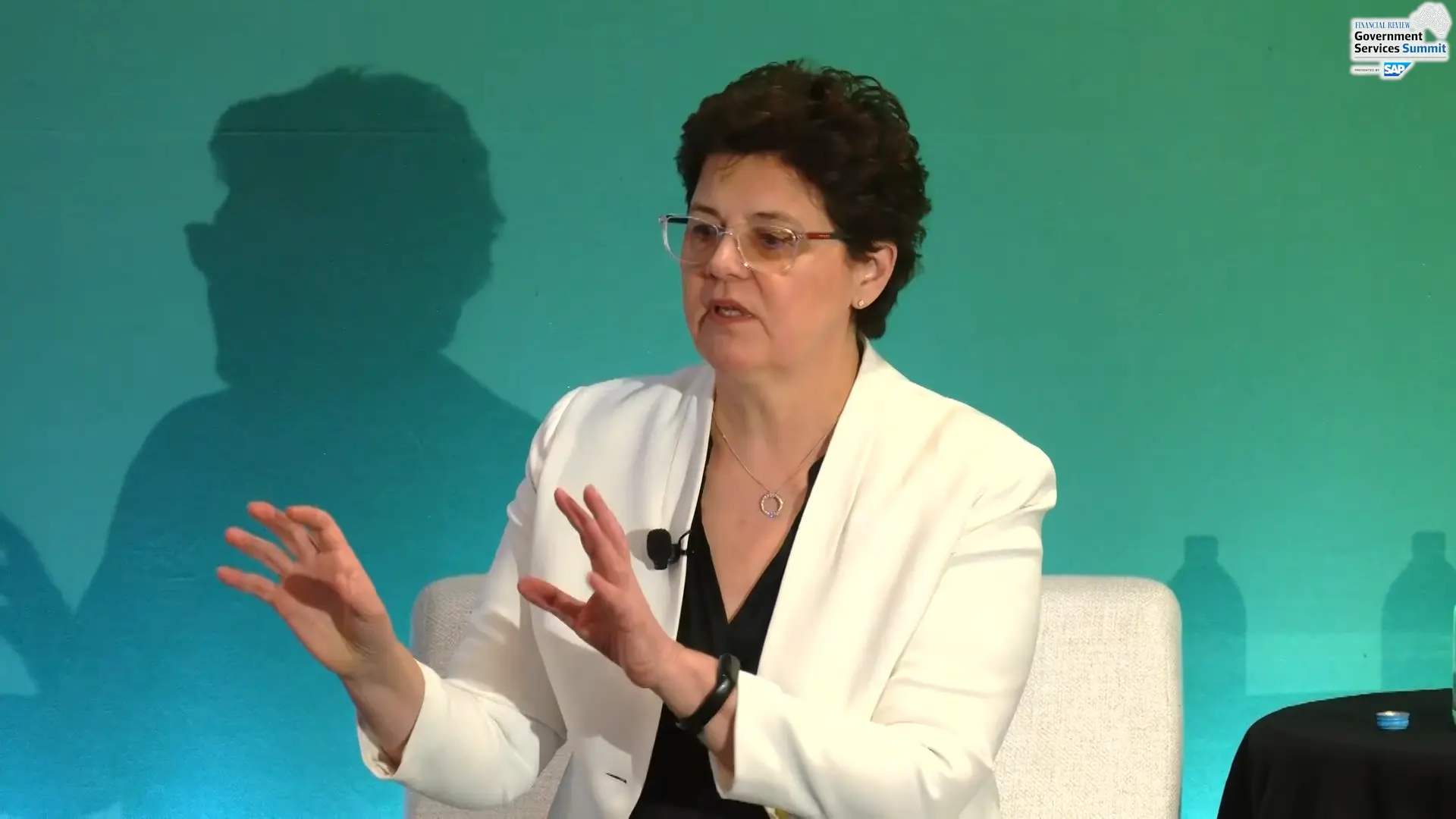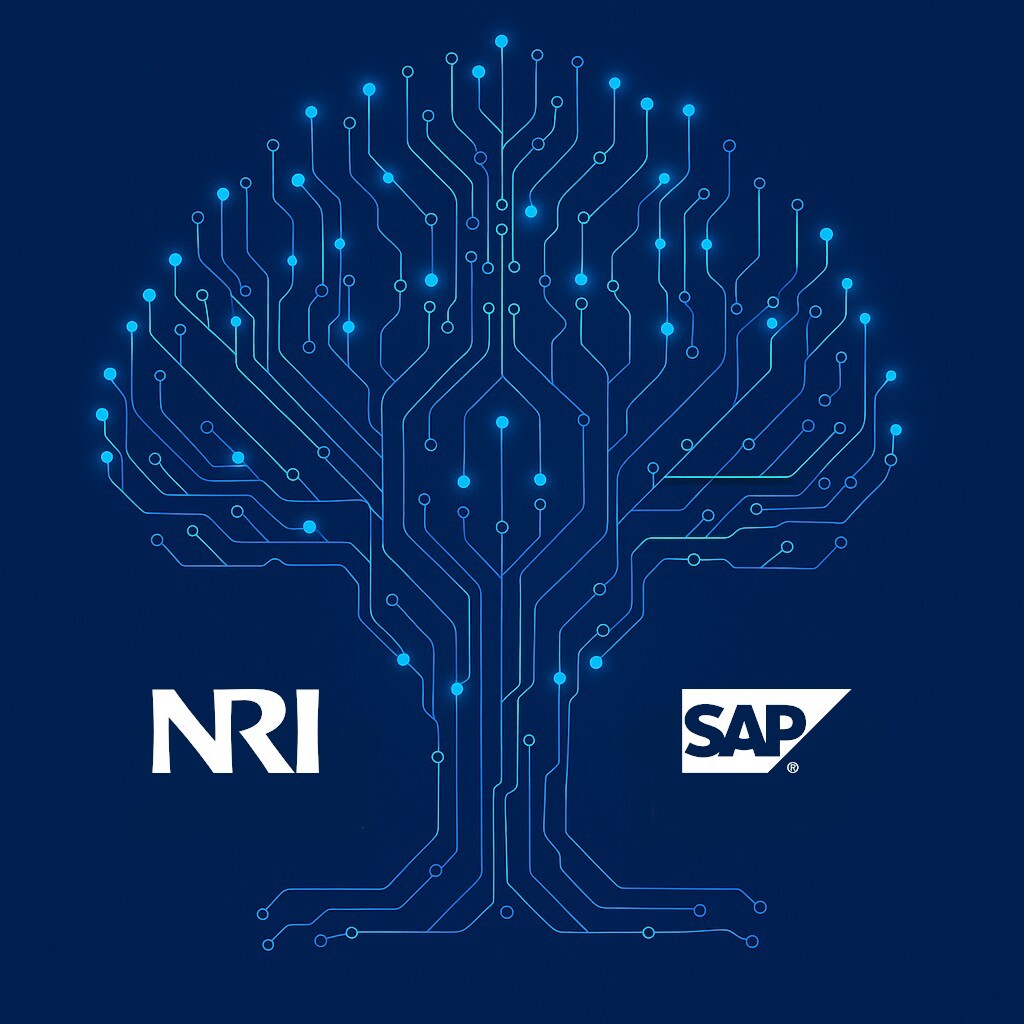Insights
5 key takeaways from the Australian Financial Review Government Services Summit
- Date 15 Aug 2025
- Filed under Insights

Panel on trust, technology and transformation
In an age of AI-driven transformation, trust in government has never mattered more. At the recent Australian Financial Review Government Services Summit, leaders from across government and industry came together to explore what it truly takes to build trustworthy systems and ensure digital transformation delivers for all Australians.
Our CEO, Kaylene O’Brien, joined an esteemed panel alongside Gordon de Brouwer (Australian Public Service Commissioner), Padma Raman (Office for Women – Department of the Prime Minister and Cabinet) and Natalie James (Secretary, Department of Employment and Workplace Relations) to discuss how to build trust, drive inclusion and align emerging technology with the needs of the people it serves.
Here are five key takeaways from the discussion:
1. Trust is earned through capability and integrity
Panellists agreed that trust in government isn’t just about perception, it’s about consistent performance. Trust is built when services work, when delivery aligns with public expectations and when technology is used transparently and ethically.
As one speaker noted, public trust is preserved “when people know these tools are being used in their interest, not ours.” This makes integrity just as important as innovation.
2. Australia’s public sector is outperforming expectations
The public sector often gets framed as slow or reluctant when it comes to adopting new technology. But as Kaylene pointed out during the panel, according to recent OECD findings, Australia’s trust in government has jumped eight percentage points in the past two years, putting it above the OECD average.
Far from falling behind, government tech programs are strengthening democratic trust through smooth and visible execution.
3. Modular delivery beats mega-programs
One of the clearest lessons shared was that digital transformation works best when it’s broken down into manageable, modular projects. Mega-programs are often overburdened with complexity and ambition, which can lead to delivery risk and delayed benefits.
The shift toward more agile, phased approaches has emerged as “one of the biggest success factors in the last few years,” according to panellists.
4. Transformation requires cross-disciplinary alignment
From legislation and policy to service design and system implementation, panellists discussed how disconnects can emerge when different functions work in isolation. The result? Systems that don’t reflect the intent of the law or the needs of users.
Clear communication and collaboration between policymakers, legal teams, program designers and technologists are essential for building solutions that serve vulnerable communities effectively and lawfully.
5. Consultants must know where their value begins and ends
A key part of the discussion centred around the role of consultants in delivering trusted digital outcomes. As Kaylene explained:
“We’re deep specialists and we are here to do a job… The real value lies in understanding where our role begins—and where it ends.”
Consultants must bring technical expertise, deliver outcomes and embed themselves in the environment without overstepping into policymaking or accountability. Clear frameworks and mutual respect between consultants and government buyers are essential to success.
Conclusion
From risk-aware innovation to modular design, the panel made one thing clear: trust is not just built on what you deliver, but how you deliver it. Whether you’re a policymaker, public servant or partner, your role in the future of transformation will depend on transparency, clarity and collaboration.
Empowering trusted, future-ready Public Services
In government, delivering technology means delivering trust. This requires partners who don’t just understand technology, but also the responsibility of delivering it. That’s why we bring precision, care, and accountability to every project, earning trust at every stage. From critical infrastructure to citizen touchpoints, our work is shaped by deep partnerships, practical insight, and a shared commitment to getting it right. This is technology delivery with purpose.





